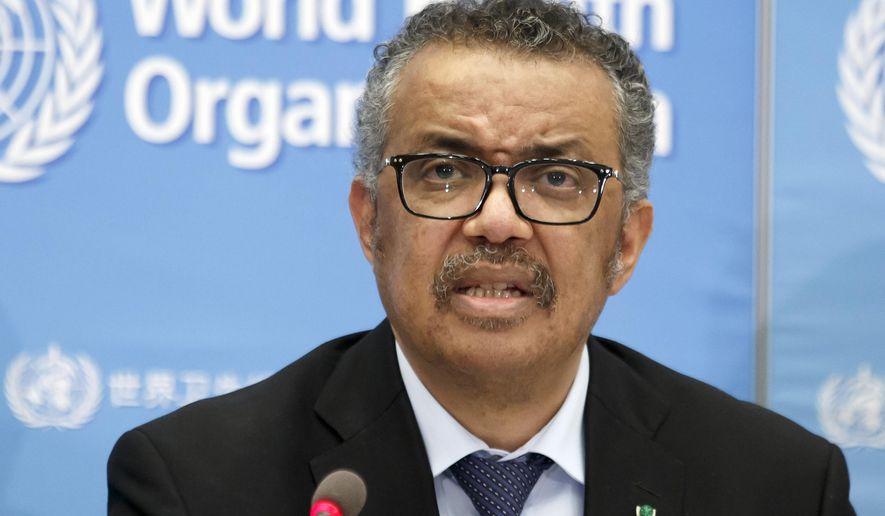The World Health Organization has retreated from its claim last week that there is “no evidence” that recovered coronavirus patients will be resistant to future infections, saying that most will enjoy some level of immunity.
In the now-deleted tweet, WHO said, “There is currently no evidence that people who have recovered from #COVID19 and have antibodies are protected from a second infection,” drawing pushback on social media.
As FiveThirtyEight’s Nate Silver put it, “The consensus of the evidence, as best as I can tell, is that there’s very likely to be some degree of immunity, although we don’t know how absolute it is and for how long it confers and there’s still a lot to be learned about it.”
WHO responded Saturday by walking back the thread, saying it had “caused concern & we would like to clarify,” and replaced the tweet with: “We expect that most people who are infected with #COVID19 will develop an antibody response that will provide some level of protection.”
The original tweet was part of a thread about a scientific brief released Friday that discouraged the idea of nations issuing “immunity passports” to those with COVID-19 antibodies, citing concerns about the accuracy and reliability of such testing on the newly emerged pathogen.
“Some governments have suggested that the detection of antibodies to the SARS-CoV-2, the virus that causes COVID-19, could serve as the basis for an ’immunity passport’ or ’risk-free certificate,’” said the WHO press release, adding, “There is currently no evidence that people who have recovered from COVID-19 and have antibodies are protected from a second infection.”
The result was headlines such as NPR’s, “’No Evidence’ Yet That Recovered COVID-19 Patients Are Immune, WHO Says,” and Bloomberg’s “WHO Warns That You May Catch Coronavirus More Than Once.”
Earlier today we tweeted about a new WHO scientific brief on “immunity passports”. The thread caused some concern & we would like to clarify:
— World Health Organization (WHO) (@WHO) April 25, 2020
We expect that most people who are infected with #COVID19 will develop an antibody response that will provide some level of protection. pic.twitter.com/AmxvQQLTjM
WHO needs to improve its communication on this.
— Nate Silver (@NateSilver538) April 25, 2020
When they say “no evidence” they mean something like “no definitive proof, yet”.
But the average person is going to read it as “there’s no immunity to coronavirus”, which is likely false and not a good summation of the evidence. https://t.co/0tuaUFd4mK
While COVID-19 is still too new to have undergone rigorous clinical trials, the body produces immunoglobulins and T-cells in response to pathogens that confer some degree of resistance to reinfection.
The Food and Drug Administration approved last month treating coronavirus sufferers with plasma donated from recovered COVID-19 patients, a process already being used in New York hospitals and elsewhere.
“What we don’t yet know is the level of protection or how long it will last,” WHO said in an updated tweet. “We are working with scientists around the world to better understand the body’s response to #COVID19 infection. So far, no studies have answered these important questions.”
The episode came as another misstep for the U.N. agency accused by some Republicans of propping up China during the COVID-19 crisis. President Trump has suspended U.S. funding pending a review of WHO’s coronavirus response.
“From parroting the Chinese communist government’s lies about COVID-19 to wrongly warning people against wearing masks, the WHO has badly mishandled its communications about the pandemic,” said Reason’s Robby Soave. “The organization really needs to get its act together.”
• Valerie Richardson can be reached at vrichardson@washingtontimes.com.




Please read our comment policy before commenting.